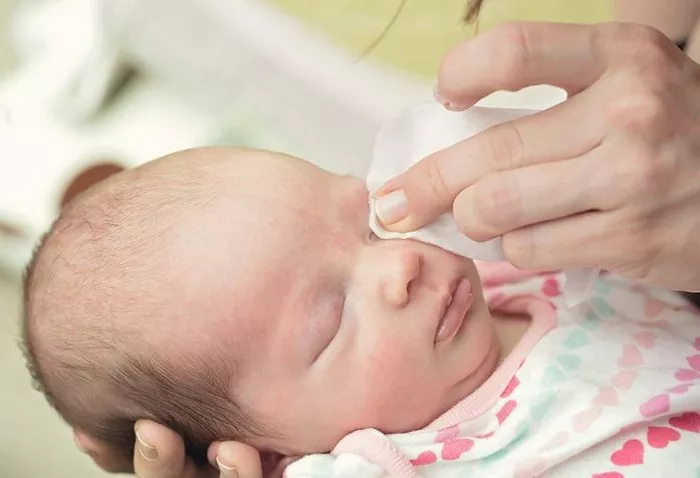Caring for a newborn involves numerous tasks, from feeding to diaper changes, and one of the essential aspects of this care is maintaining their hygiene. Washing a newborn’s face might seem straightforward, but it requires careful attention and understanding to ensure the baby’s delicate skin remains healthy. This article provides a comprehensive guide on how often to wash a newborn’s face, including the best practices, tips, and common concerns.
The Importance of Washing a Newborn’s Face
Newborns have sensitive skin that is prone to irritation and infection. Washing their face regularly helps to remove dirt, milk residue, and other substances that can accumulate. Cleanliness is crucial to prevent conditions like cradle cap, baby acne, and skin infections. Moreover, establishing a routine can help soothe and comfort your baby, making them feel secure and cared for.
How Often Should You Wash Your Newborn’s Face?
It’s generally recommended to wash a newborn’s face at least once a day. This can be part of the daily bathing routine or done separately if a full bath isn’t given every day. The American Academy of Pediatrics suggests that babies do not need daily baths in the first few months, but their faces should still be kept clean. Here’s a breakdown of the frequency:
Daily Wash: Washing your newborn’s face daily helps to keep their skin clean and free from irritants. This is especially important if your baby spits up often or has a lot of drool.
Spot Cleaning: In addition to daily washing, you might need to clean your baby’s face more frequently throughout the day. This is especially true after feedings, when milk can dribble down their cheeks and chin.
Bath Time: When you do give your baby a bath, ensure that their face is gently washed as part of the process.
How to Wash a Newborn’s Face
Step-by-Step Guide
Washing a newborn’s face requires gentle care to avoid irritation or injury. Here’s a step-by-step guide to help you:
1. Prepare the Area: Ensure you have all the necessary items ready, including a soft washcloth, warm water, and a mild, baby-safe cleanser if needed.
2. Clean Your Hands: Before touching your baby’s face, wash your hands thoroughly to prevent transferring any dirt or germs.
3. Use Warm Water: Fill a small bowl with warm water. The water should be lukewarm, not hot, to avoid burning your baby’s sensitive skin.
4. Dampen the Washcloth: Wet the washcloth with the warm water. Make sure it’s not too wet; wring out any excess water.
5. Gently Wipe the Face: Start by gently wiping your baby’s eyes from the inner corners to the outer corners using a clean corner of the washcloth for each eye. Then, move on to the rest of the face, including the forehead, cheeks, nose, and chin.
6. Pay Attention to Folds: Make sure to clean any folds or creases in the skin, such as around the neck and under the chin, where milk and drool can accumulate.
7. Dry the Face: Pat your baby’s face dry with a soft towel. Avoid rubbing the skin, as this can cause irritation.
Choosing the Right Products
Using the right products is crucial when washing your newborn’s face. Here are some tips:
Mild Cleanser: If needed, use a mild, fragrance-free baby cleanser. Avoid products with harsh chemicals or strong fragrances that can irritate your baby’s skin.
Soft Washcloth: Choose a washcloth that is soft and gentle. Muslin or cotton washcloths are excellent options as they are gentle on delicate skin.
Hypoallergenic Products: Opt for hypoallergenic products that are less likely to cause allergic reactions or irritation.
Addressing Common Concerns
Newborns can develop various skin conditions, and understanding how to care for them is essential.
Cradle Cap: This condition causes scaly patches on the scalp and sometimes on the face. Gentle washing can help, but avoid scrubbing. Consult your pediatrician for appropriate treatments.
Baby Acne: Small red or white bumps can appear on a newborn’s face. It usually resolves on its own, but keeping the face clean can help prevent further irritation.
Eczema: If your baby has eczema, use a gentle cleanser and avoid over-washing. Moisturize the skin as recommended by your pediatrician.
See Also: When Do Newborns Feed Less at Night?
Tips for Making Face Washing Enjoyable
Washing your newborn’s face can be a bonding experience. Here are some tips to make it enjoyable:
Stay Calm: Babies can sense your emotions. Stay calm and talk to your baby in a soothing voice.
Warm Environment: Ensure the room is warm and free from drafts to keep your baby comfortable.
Gentle Touch: Use a gentle touch and be patient. Avoid rushing the process.
When to Consult a Pediatrician
If you notice any signs of irritation, such as redness, swelling, or a rash that doesn’t improve, consult your pediatrician. Early intervention can prevent minor issues from becoming serious problems.
Establishing a Routine
Establishing a consistent routine for washing your newborn’s face can provide comfort and security for your baby. Consistency helps your baby understand what to expect and can make the process smoother over time.
Same Time Daily: Try to wash your baby’s face at the same time each day, such as during their morning routine or before bed.
Comfort Items: Use familiar items, such as the same washcloth and towel, to create a sense of familiarity.
Conclusion
Washing a newborn’s face is a delicate but essential part of their daily care. By following the guidelines provided in this article, you can ensure that your baby’s skin remains clean and healthy. Remember to be gentle, use the right products, and establish a consistent routine. If you have any concerns about your baby’s skin, don’t hesitate to consult your pediatrician for advice. Taking these steps will help you provide the best care for your newborn and keep their skin looking and feeling its best.


